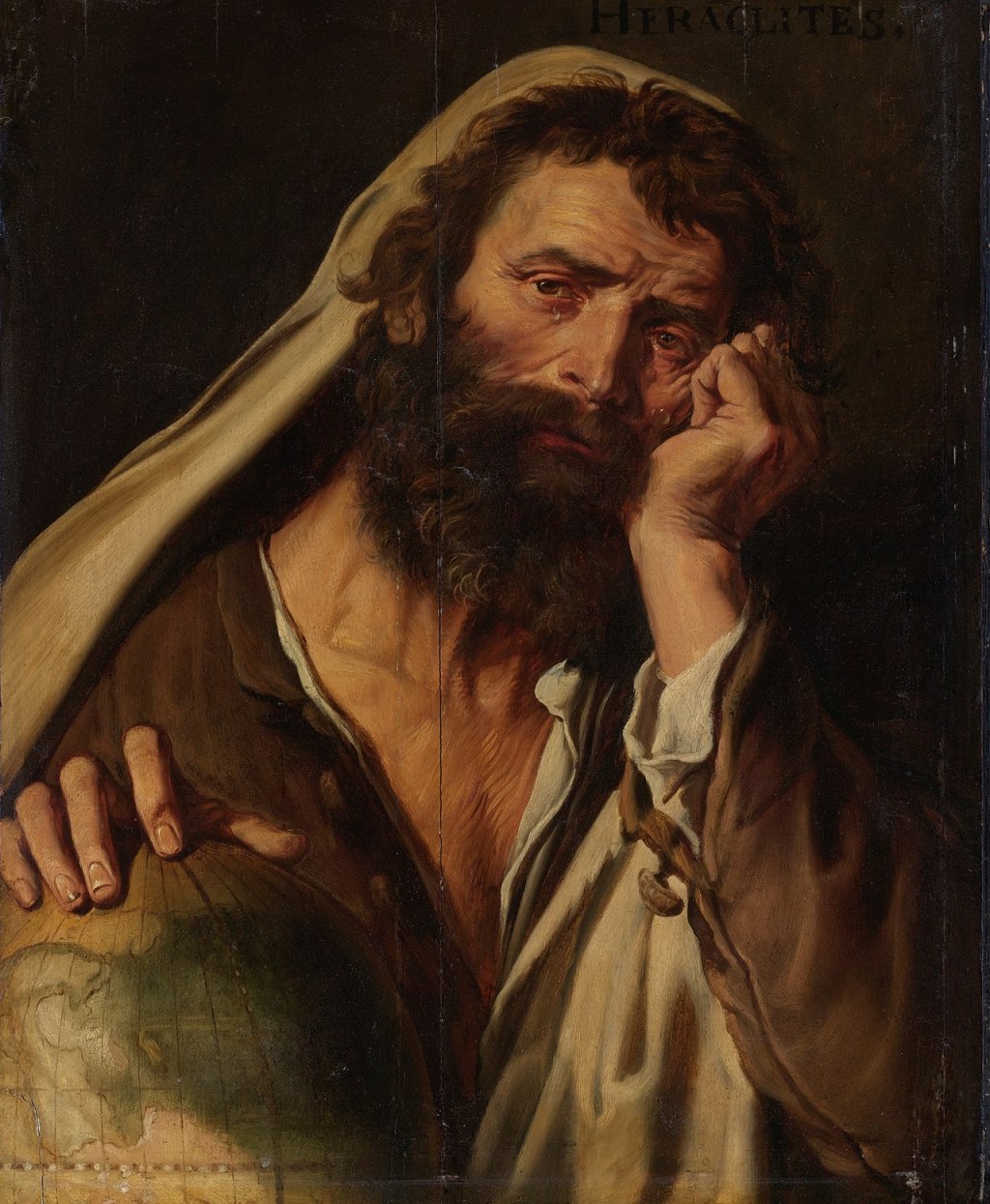Heraclitus (540–480 BC) was an ancient Greek philosopher who earned the reputation of ‘the riddler’. The title was fair too — consider what he had to say on the subject of death:
Death is all things we see awake; all we see asleep is sleep.
Obscurity was a trait that Heraclitus happily embraced. One commentator on Heraclitus said of an apparently straightforward fragment that ‘the absence of anything enigmatic in this text might almost cast doubt on its authenticity’.
However, he wasn’t simply obscuring. That is what he truly believe. “Nature,” as he put it, “loves to hide.” In other words, things are not what they seem. In fact, for Heraclitus things were often the opposite of what they seemed. Therefore, some of his contradictory puzzles are just his idiosyncratic way of expressing that fact. For him, nature was a nest of riddles.
Unlike the philosophers of his time, Heraclitus made no worthwhile contribution to any sciences. More than looking outside, he preferred turning inwards, saying, “I went in search of myself.” The others were too busy with the world outside to look for one within. Heraclitus, on the other hand, believed that one way in which he could find out about the nature was by examining his own self. It is in him that some have claimed to see the first stirrings of psychology: he may have been the first thinker to regard the soul not only in the traditional way, as a heavenly breath which animates the body, but also as something that does man’s thinking and perceiving for him. He turned to introspection to describe some of the action on the inner stage, discussing dreams, the emotions and character.

Since he was pursuing self-enquiry, just like the Buddhists in the East, it was inevitable that he would notice the impermanence of the world around. One of his best-known remarks is, “One cannot step twice into the same river.” It was a proud discovery for Heraclitus. And through this, he was trying to draw attention to the fact that the universe is constantly changing. Since the waters that compose a river are forever changing as it flows past, it is a different river each time you step into it — and so is it with the objects, nature and ourselves.
One could also make the case that, just like in the East, Heraclitus too was questioning the non-duality of the world. Consider the following remarks made by him:
The way up and down are one and the same.
The same... living and dead, and the waking and the sleeping, and young and old.
It is disease that makes health sweet and good, hunger satiety, weariness rest.
The sea is the purest and foulest water: for fish drinkable and life sustaining; for men undrinkable and deadly.
This is how Heraclitus viewed the reality, as a unity of things. That is, the way in which the opposites are the same. Failure to appreciate this truth is one of the shortcomings for which Heraclitus berates earlier wise men.
Often, Heraclitus’s views have been exaggerated and misinterpreted. Even Plato and Aristotle made this mistake. Because of that, the real Heraclitus has been blotted out for much of the history of philosophy. In a strange way, it tells us how farsighted Heraclitus was, as he wanted to keep his doctrines secret. Sadly, in the end, he may have got what he wanted.
***
Reference Books:


